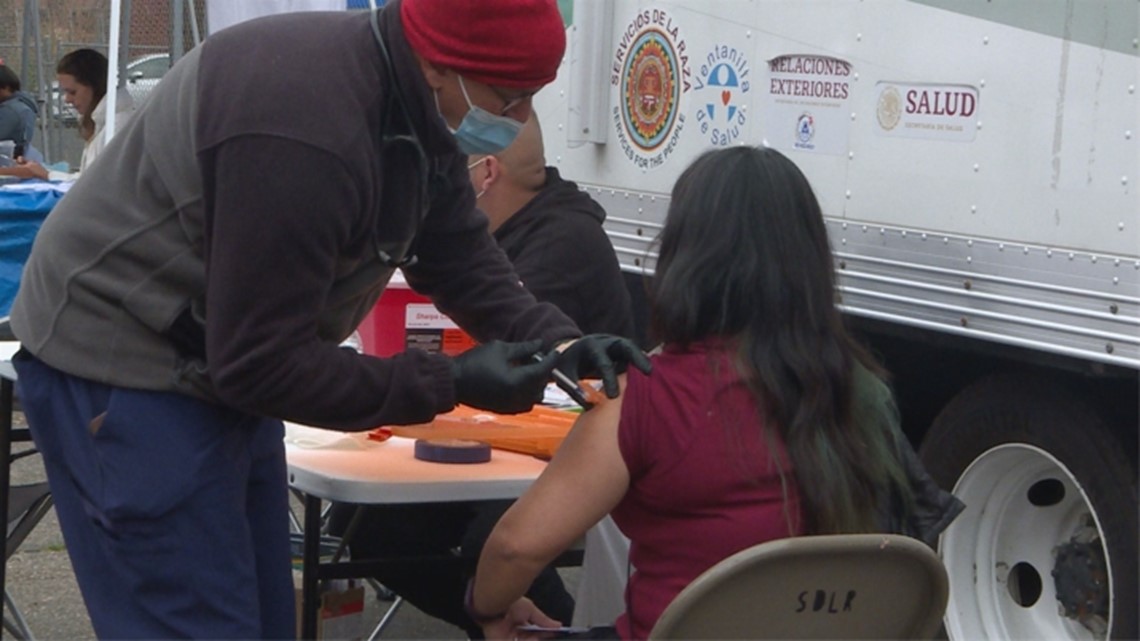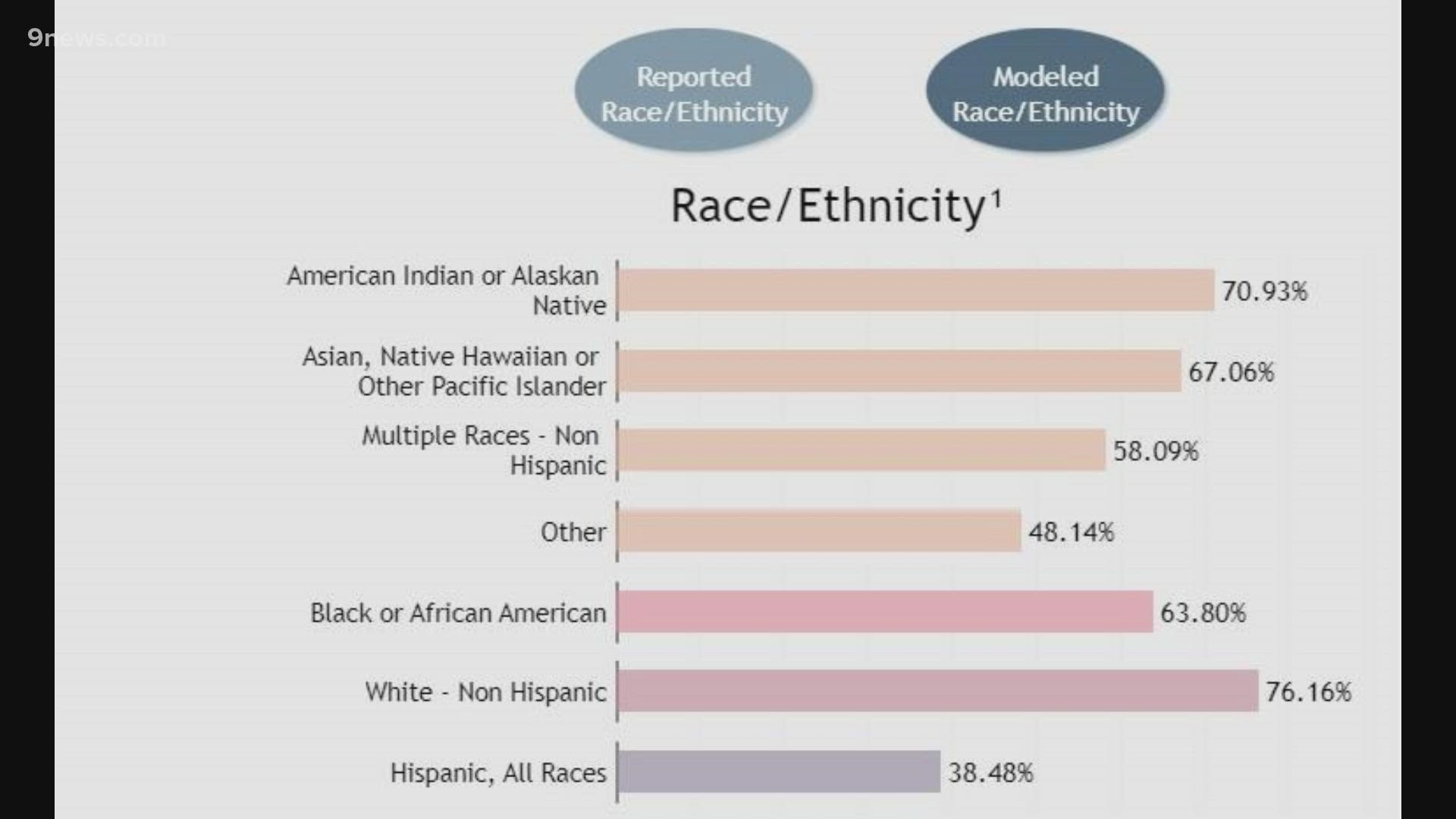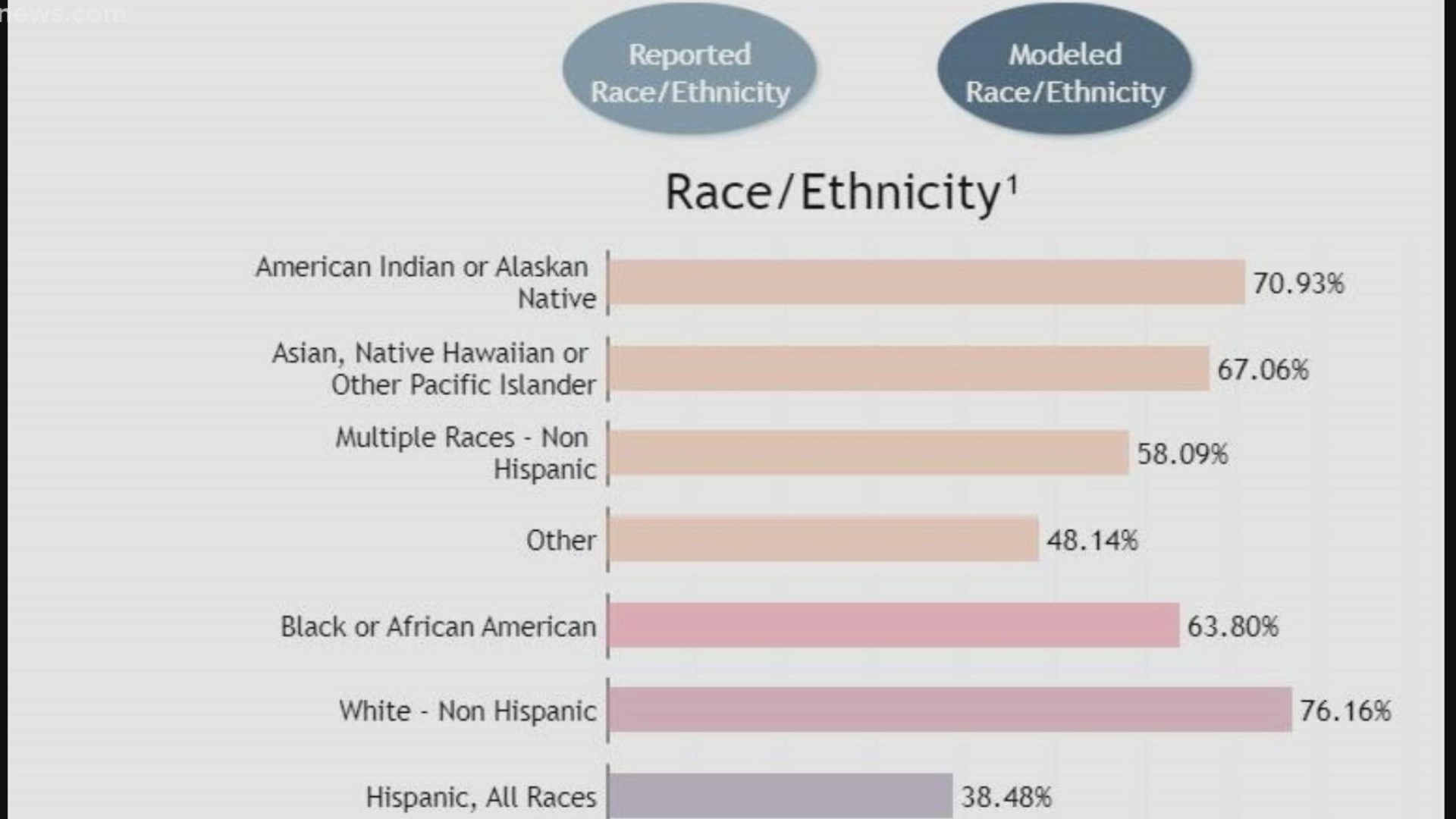COLORADO, USA — The most recent numbers on the state's vaccine dashboard shows that only 38% of Colorado's Hispanic population has been vaccinated with at least one dose of a COVID-19 vaccine.
That is lowest percentage of all the demographic groups in Colorado. So we asked a medical expert who serves the Hispanic community in Colorado to tell us why that is.
Dr. Gonzalez-Fisher, medical expert for the non-profit organization, Servicios de la Raza, said that it's a combination of things that make it challenging for some people to get vaccinated.
"About 42% of the people that we serve are uninsured and this is one of the things that has a certain impact on them," Gonzalez-Fisher said. "The other part is that a lot of the people that we serve are monolingual Spanish speakers, they don't understand the system. They're front line workers that don't have permission from their employers to go to get a vaccine sometimes, and there is a lot of distrust in the system."
RELATED: Community organizations reflect on efforts to increase COVID-19 vaccinations in Latino communities
According to Gonzalez-Fisher, mask mandates helped increase vaccinations and when the Omicron variant appeared, it increased the number of people getting vaccinated for the first time.
"It's very interesting. In the clinics that we've been doing in January, I think that around 30% of the people vaccinated were first doses," he said.


During the live stream segment, Gonzalez-Fisher also weighed in on the omicron variant, as it appears to still be the dominant strain of the virus.
"Even though symptoms seem to be less severe with omicron, the US is still having a high rate of cases of omicron," he said. "It is not a mild variant of the virus."
"Now, at least 50% of the people who get the virus will be asymptomatic, that is troublesome because a lot of people who are walking around who have been in contact with someone, they don't know that they have the virus," he continued.
Gonzalez-Fisher said that some of the symptoms that people complain about the most with omicron were fatigue, body ache, sore throat, cough and a fever. He added that mild flu-like symptoms could be caused by omicron.
If symptoms persist, Gonzalez-Fisher encouraged people to get tested and he recommended the rapid at home COVID-19 tests over the PCR tests.
"The PCR for some reason, is having a high number of false negatives with Omicron, he said."
One of the many efforts of the non-profit organization to get more people vaccinated, is an after hours clinic that Servicios de la Raza is offering for those folks that may only be able to attend after work.
The clinic is held every Tuesday from 4 p.m. to 8 p.m. at the organization which is located at 3131 W 14th Ave. This week, the clinic will be moved to Thursday due to the winter storm that will hit Colorado this evening.
Servicios De La Raza, the state's largest Latino-serving nonprofit is working to bring more COVID-19 resources and information to the community members in Colorado who are the most vaccine-resistant and hardest to reach.
The organization will continue their partnership with healthcare providers to bring vaccines to the communities they serve.
As part of this effort, Servicios de la Raza, 9NEWS and Telemundo will continue to present a bilingual weekly livestream segment each Tuesday at 2 p.m. on an ongoing basis.
Viewers can send in their questions to 9NEWS WATCH anchor Chris Bianchi to the following email: chris.bianchi@9news.com.
>Watch video: Servicios de la Raza, Telemundo and 9NEWS present weekly segment on COVID-19 and the vaccine
VIDEOS SUGERIDOS: Las voces del cambio


